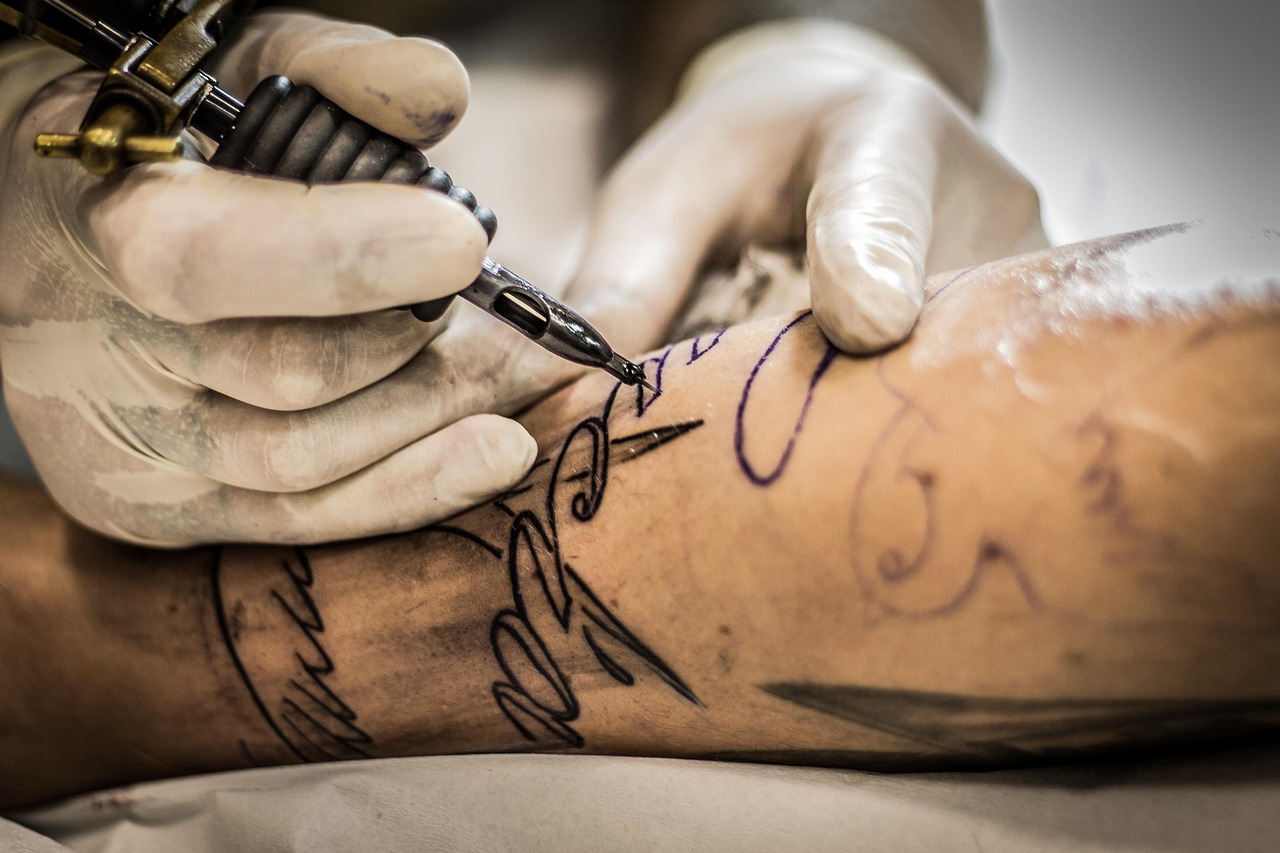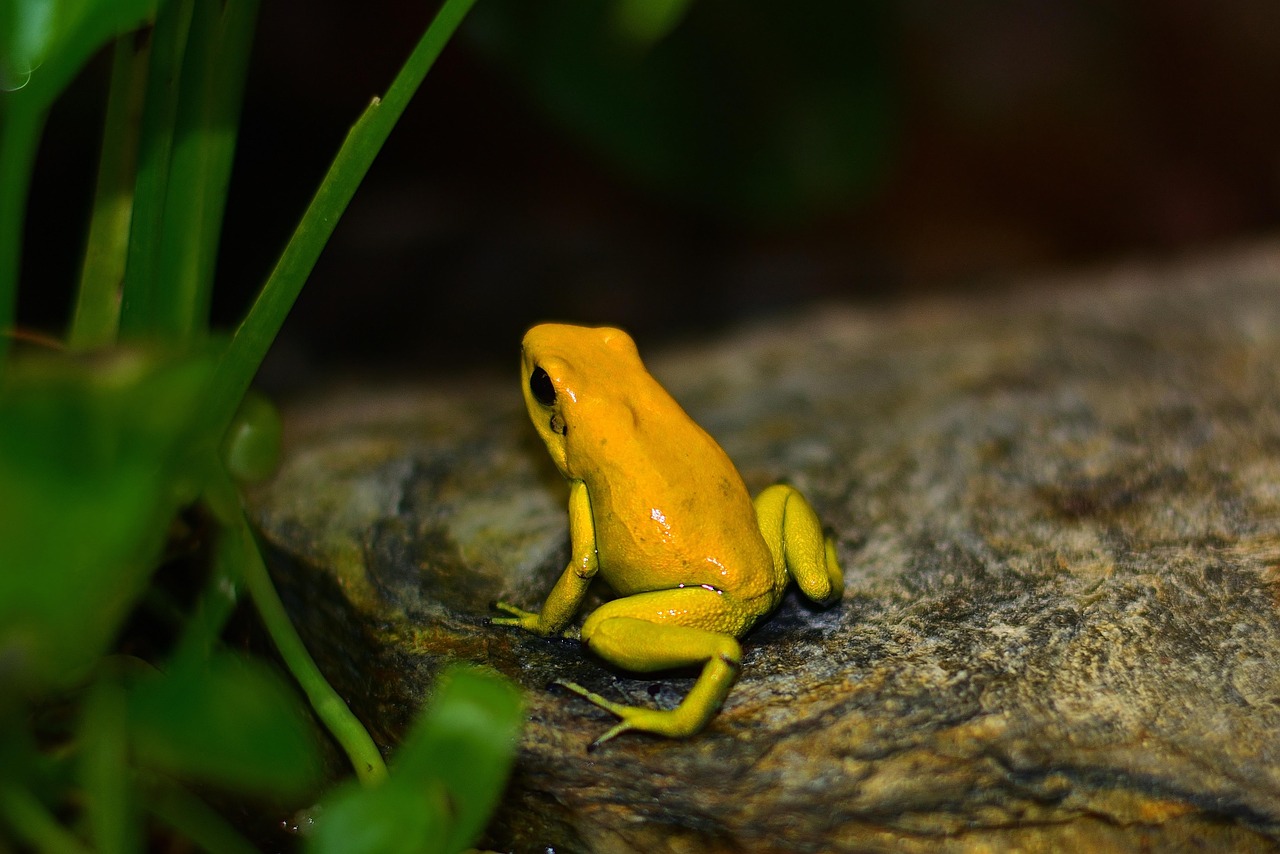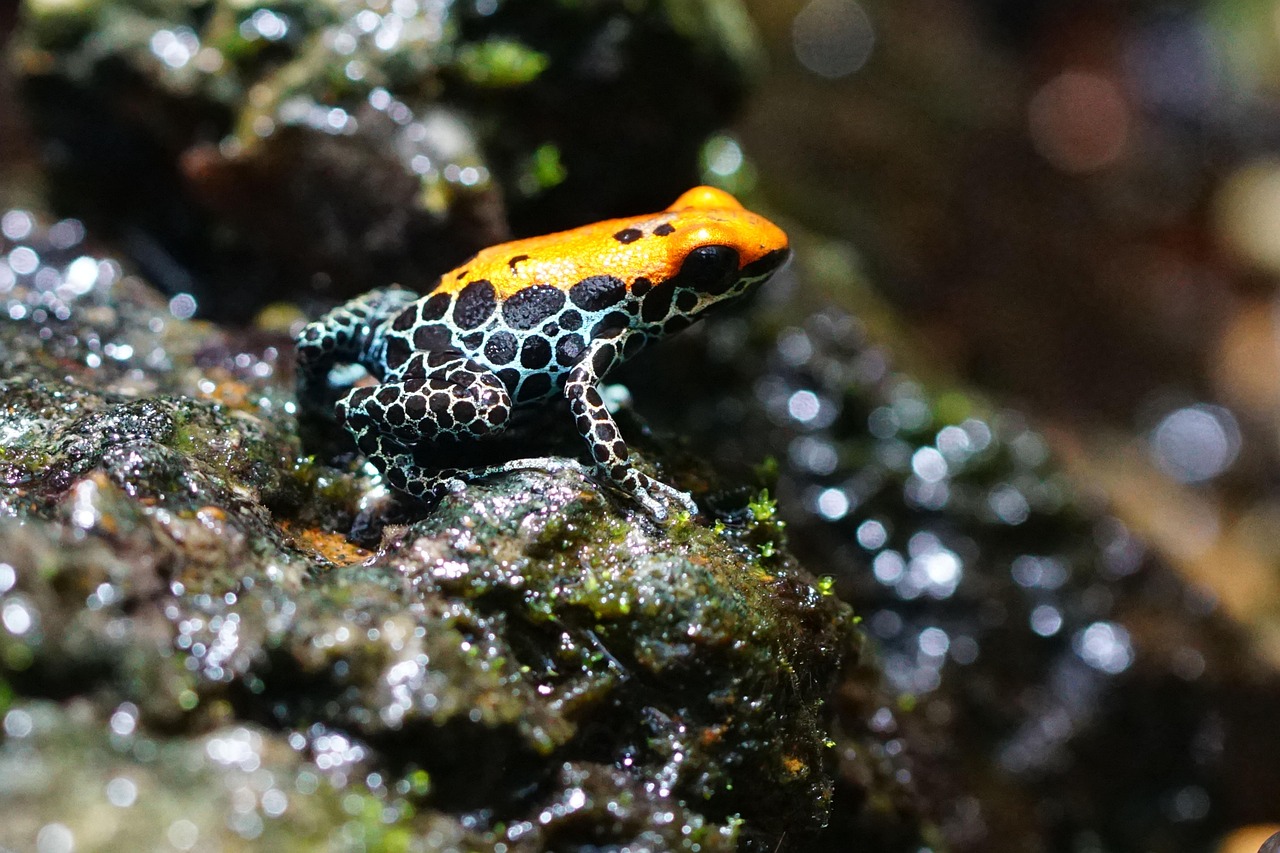Poison tree tattoos often symbolize the duality of life, representing both beauty and danger. They embody themes of growth, temptation, and the consequences of choices, reflecting deeper emotional connections and personal stories of struggle and resilience.
Exploring the Symbolism of Poison Tree Tattoos
Tattoos have long served as a canvas for personal expression. Among the many designs available, poison tree tattoos stand out for their striking imagery and rich symbolism. The poison tree, often depicted with vibrant colors and intricate details, is more than just an aesthetic choice. It encapsulates profound meanings that resonate with many individuals.

The concept of a poison tree can be traced back to various literary and mythological references. For instance, in the Bible, the “Tree of Knowledge of Good and Evil” in the Garden of Eden represents temptation and the loss of innocence. This dual nature of trees—serving as both sources of life and danger—has made them powerful symbols across cultures.
In contemporary tattoo culture, the poison tree symbolizes the complexities of human emotion and experience. It often reflects themes such as:
- Growth: Just like a tree grows from a seed, individuals grow from their experiences. This tattoo can represent personal development through adversity.
- Choice: The poison tree serves as a reminder of the choices we make. Each decision can lead to beautiful blooms or toxic outcomes.
- Duality: The contrast between beauty and danger speaks to the complexity of life. It invites reflection on the balance of light and dark within ourselves.
- Resilience: A poison tree can signify overcoming challenges. It embodies strength in the face of adversity.
The design of a poison tree tattoo can vary widely, allowing for personal interpretation. Some common elements include:

| Design Element | Meaning |
|---|---|
| Thorns | A representation of the obstacles faced in life. |
| Fruit | A symbol of temptation and the choices that can lead to both reward and consequence. |
| Colors | Vibrant colors can signify life and energy, while darker colors may imply danger or caution. |
| Roots | A reminder of one’s foundations and where they come from, often symbolizing stability amidst chaos. |
Many people choose poison tree tattoos as a way to tell their own stories. The imagery can serve as a conversation starter, allowing for discussions about personal journeys. Each tattoo is unique to the wearer, reflecting their experiences with growth, loss, and resilience.
The cultural significance of trees extends beyond mere aesthetics. In various traditions, trees are viewed as sacred symbols. They connect humanity to nature and the universe. Poison trees specifically highlight an important lesson about balance—acknowledging that beauty often exists alongside danger.
Furthermore, this type of tattoo can appeal to those who appreciate nature’s complexity. Nature is full of contradictions; it offers nourishment while also posing threats. The poison tree embodies this idea, making it a meaningful choice for individuals who resonate with nature’s dualities.

As tattoos continue to gain popularity in society, many seek designs that represent their inner struggles and triumphs. Poison tree tattoos fulfill this desire by merging art with personal narrative, creating a lasting mark that is both beautiful and thought-provoking.
In summary, poison tree tattoos serve as powerful symbols of growth, choices, and resilience. They invite wearers to reflect on their journeys while connecting them to deeper cultural and natural themes. As this design remains popular, its meanings continue to evolve among those who choose to ink it onto their skin.
Historical and Cultural Significance of Trees
The symbolism of trees, including the poison tree, has been a part of human culture for centuries. Different cultures view trees as sacred, powerful, and essential to life. Understanding this historical context can deepen the appreciation for poison tree tattoos.

In many ancient civilizations, trees were believed to be the link between heaven and earth. They served as symbols of growth, wisdom, and renewal. Here are some notable examples:
- Celtic Culture: In Celtic mythology, the oak tree was revered for its strength and longevity. It symbolized endurance and stability.
- Native American Traditions: Many Native American tribes view trees as sacred beings. They believe trees have spirits that provide guidance and wisdom.
- Eastern Philosophy: In Buddhism, the Bodhi Tree symbolizes enlightenment, representing the path to awakening.
The poison tree’s duality is often highlighted in folklore and literature. Stories about forbidden fruits or dangerous knowledge can be traced back through various cultures. These narratives emphasize the consequences of choices made in pursuit of desire.
The Aesthetic Appeal of Poison Tree Tattoos
The visual representation of poison tree tattoos plays a crucial role in their popularity. Artists often use vibrant colors, intricate details, and imaginative designs to create stunning pieces of body art. The aesthetics can vary widely, reflecting personal tastes and cultural influences.
Common design features include:
- Dark Colors: Shades of black or deep green may signify danger or the unknown, enhancing the tattoo’s mysterious allure.
- Bright Fruits: Colorful fruits can symbolize temptation and beauty, creating a striking contrast against darker tones.
- Intricate Roots: Detailed roots can represent stability and grounding, suggesting a connection to one’s origins.
Tattoo artists often customize poison tree designs to reflect personal stories. This flexibility allows individuals to incorporate elements that are meaningful to them, making each tattoo unique.
Personal Stories Behind Poison Tree Tattoos
Many individuals choose poison tree tattoos to express their personal journeys. Each tattoo carries a unique story that represents the wearer’s experiences and emotions. Here are some common themes that inspire these tattoos:
- Overcoming Adversity: For some, the poison tree symbolizes challenges faced in life. It serves as a reminder of their strength and resilience.
- Personal Growth: The tattoo can represent transformation, illustrating how individuals have evolved through their experiences.
- Loss and Grief: Some choose this design to commemorate loved ones lost, using the poison tree as a symbol of both beauty and pain.
- Choices Made: The tattoo can represent pivotal moments in life, serving as a reminder of the importance of choices and their consequences.
This personalization aspect makes poison tree tattoos deeply significant for many, allowing individuals to carry their stories with them in a visual form.
The Influence of Modern Culture on Tattoo Trends
The popularity of poison tree tattoos has been shaped by modern culture. Social media platforms such as Instagram and Pinterest have played a significant role in spreading awareness and appreciation for unique tattoo designs. Influencers and tattoo artists showcase their work online, inspiring others to explore similar themes.
Television shows focusing on tattoo artistry have also contributed to the trend. These programs often highlight the meaning behind various designs, encouraging viewers to choose tattoos that resonate with their personal stories.
As society continues to embrace body art as a form of self-expression, poison tree tattoos remain relevant. They reflect a blend of historical significance, personal narrative, and aesthetic appeal that captivates both wearers and admirers alike.
The Process of Choosing a Poison Tree Tattoo
Selecting a poison tree tattoo involves careful consideration. Individuals should reflect on what the design represents for them personally. Here are some steps to guide the decision-making process:
- Research: Explore different designs and meanings associated with poison tree tattoos. Understanding the symbolism can help clarify personal connections.
- Design Elements: Consider what specific elements resonate most—thorns, roots, fruits, or colors—and how they relate to personal experiences.
- Consultation with an Artist: Schedule a consultation with a tattoo artist to discuss ideas and get professional advice on customization possibilities.
- Placement: Think about where on the body the tattoo will be placed. Different locations can affect visibility and significance.
This thoughtful approach ensures that the chosen tattoo not only looks beautiful but also carries deep personal meaning for the wearer.
Common Variations of Poison Tree Tattoos
Poison tree tattoos come in various styles and interpretations, allowing individuals to express their unique stories and perspectives. Each variation has its own nuances, contributing to its overall meaning. Below are some common variations of poison tree tattoos that have gained popularity in recent years.
Watercolor Style
The watercolor style is characterized by vibrant colors and a soft, blended appearance. This approach gives the tattoo a fluid, artistic look, resembling a painting rather than traditional ink. The watercolor poison tree tattoo often symbolizes creativity, emotional expression, and the beauty of life’s complexities.
Minimalist Design
Minimalist tattoos focus on simplicity and clean lines. A minimalist poison tree tattoo may feature basic shapes or outlines, using negative space creatively. This design can represent clarity and strength in overcoming challenges while maintaining a sense of elegance.
Realistic Representation
Realistic poison tree tattoos are detailed and lifelike, capturing the intricate features of a tree. This style emphasizes the natural beauty of the tree while highlighting its darker aspects. Such tattoos often symbolize a deep connection to nature and the duality of life.
Traditional Styles
Traditional tattoo styles may include bold outlines and limited color palettes. These tattoos often evoke a sense of nostalgia and timelessness. A traditional poison tree tattoo can convey a classic understanding of the themes associated with trees, such as growth and danger.
Symbolic Elements in Poison Tree Tattoos
The elements incorporated into poison tree tattoos are crucial for conveying their deeper meanings. Each component can add layers to the interpretation of the design. Here are some of the most common symbolic elements found in these tattoos:
- Thorns: Representing pain and hardship, thorns emphasize the struggles that come with growth and change.
- Fruits: Often depicted as bright and alluring, fruits symbolize temptation and the allure of making choices that can lead to joy or regret.
- Roots: Roots signify stability and strength, grounding the wearer in their identity and life experiences.
- Leaves: Leaves can represent growth and renewal, signifying new beginnings or phases in life.
The combination of these elements allows for a personalized interpretation. A tattoo might focus more on one element over another depending on what the wearer wishes to emphasize in their personal journey.
The Emotional Connection to Poison Tree Tattoos
Many individuals choose poison tree tattoos due to their emotional significance. The design often resonates with personal experiences, making it a form of therapy or healing for some. Here are a few ways in which these tattoos create emotional connections:
- Healing from Trauma: For those who have experienced trauma or loss, a poison tree tattoo can serve as a reminder of resilience and recovery.
- Coping with Change: The tattoo may symbolize acceptance of life’s changes, helping wearers to embrace new paths.
- Commemoration: Many choose this design to honor loved ones who have passed away, using the tattoo as a tribute to their memory.
This emotional connection enhances the significance of the tattoo beyond its visual appeal, making it a deeply personal reminder of one’s journey through life.
Popularity Among Various Demographics
The popularity of poison tree tattoos spans across different demographics, appealing to a wide range of individuals. Various factors contribute to this trend:
- Younger Generations: Many millennials and Gen Z individuals resonate with tattoos that tell a story or convey deeper meanings. They often seek designs that reflect their personal journeys.
- Nature Enthusiasts: Those with a passion for nature are drawn to poison tree tattoos as they encapsulate themes of growth and the natural world.
- Artists and Creatives: The artistic nature of poison tree designs attracts creative individuals who appreciate unique body art that reflects their personalities.
This broad appeal demonstrates how poison tree tattoos can transcend age, cultural background, and personal experiences, making them a popular choice for many seeking meaningful body art.
The Role of Social Media in Tattoo Trends
Social media has played an instrumental role in shaping tattoo trends, including poison tree designs. Platforms like Instagram allow artists to showcase their work, reaching a global audience. This visibility fosters community engagement and inspires others to explore similar themes in their body art.
In addition to showcasing designs, social media facilitates conversations around personal stories tied to tattoos. Hashtags such as #PoisonTreeTattoo help individuals find inspiration while connecting with others who share similar experiences. This online community supports those considering getting inked, offering encouragement and advice.
As trends evolve, social media continues to influence how people perceive and choose their tattoos, making it an essential part of contemporary tattoo culture.
The Impact of Personal Narratives on Tattoo Choices
Beyond aesthetics, personal narratives significantly shape the decision to get poison tree tattoos. Each tattoo tells a story, encapsulating experiences, emotions, and transformations. For many, these narratives provide a sense of purpose and identity. Here are some ways personal stories intertwine with tattoo choices:
- Symbol of Survival: Many individuals use poison tree tattoos to represent their journey through trauma or recovery. The design serves as a visible reminder of their strength and resilience.
- Expression of Identity: The tattoo can symbolize an individual’s unique path, reflecting their beliefs, values, and experiences. It allows them to express their identity in a meaningful way.
- Connection to Heritage: Some may choose poison tree tattoos to honor cultural or familial ties. The design can represent a connection to ancestry or shared experiences within a community.
By incorporating personal narratives into their tattoos, wearers create a powerful bond with their body art. This connection transforms the tattoo from mere ink on skin to a profound expression of life’s journey.
The Evolution of Tattoo Meanings Over Time
As society evolves, so do the meanings associated with tattoos, including poison tree designs. What may have once been viewed as a symbol of rebellion or defiance is now often embraced as a form of self-expression and art. The changing perceptions can be attributed to several factors:
- Cultural Acceptance: Tattoos have become more widely accepted in mainstream culture. This shift encourages individuals to explore designs that resonate with their personal stories without fear of stigma.
- Artistic Evolution: The tattoo industry has seen significant advancements in artistry and technique. As artists push creative boundaries, the possibilities for meaningful designs continue to expand.
- Global Influences: Exposure to diverse cultures through travel and social media has led to a blending of tattoo styles and meanings. This fusion enriches the symbolism behind designs like the poison tree.
This evolution reflects society’s growing appreciation for tattoos as legitimate forms of art and self-expression, allowing individuals to embrace inked representations of their life experiences.
Choosing the Right Artist for Your Poison Tree Tattoo
The choice of tattoo artist plays a vital role in the final outcome of any tattoo, including poison tree designs. A skilled artist will not only understand the technical aspects of tattooing but also appreciate the meaning behind the design. Here are some tips for selecting the right artist:
- Review Portfolios: Examine an artist’s previous work to ensure their style aligns with your vision for the poison tree tattoo.
- Seek Recommendations: Ask friends or family members for referrals if they have had positive experiences with specific artists.
- Communicate Clearly: Discuss your ideas and the meaning behind your desired design with potential artists. A good artist will listen and collaborate with you to create a unique piece.
- Check Hygiene Standards: Ensure that the tattoo studio follows strict hygiene practices for a safe and clean experience.
Finding the right artist is essential for translating your vision into a stunning tattoo that resonates with your personal journey.
Conclusion
Poison tree tattoos represent a rich tapestry of meanings, intertwining themes of growth, beauty, and danger. These designs resonate deeply with individuals who seek to express their personal stories through body art. As trends evolve and cultural perceptions change, poison tree tattoos continue to hold significance across various demographics.
The emotional connections tied to these tattoos highlight the importance of personal narratives in shaping choices. With influences from modern culture and social media, the popularity of poison tree tattoos is likely to persist, inspiring future generations to explore their own unique interpretations.
Ultimately, each poison tree tattoo serves as a reflection of individuality, encapsulating journeys through life’s complexities while celebrating the duality of existence. Whether chosen for aesthetic appeal or profound meaning, these tattoos remain powerful symbols that resonate with many people today.
